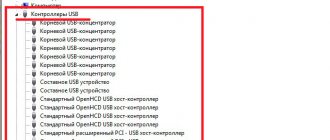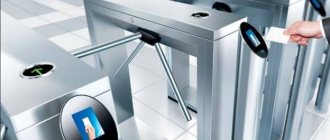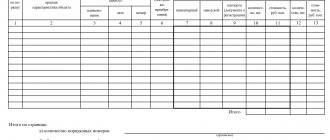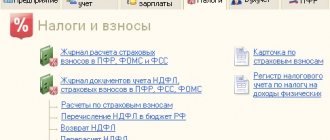Legislative justification
The document regulating the inspections is the Regulation on the procedure for conducting cash transactions No. 373-P, approved by the Central Bank on October 12, 2011. The following acts are also relevant:
- Federal Law No. 54 “On the use of cash register systems” dated May 22, 2003.
- Order of the Ministry of Finance No. 132n dated October 17, 2011 (hereinafter referred to as the Regulations).
- Federal Law No. 943-1 “On Tax Authorities” dated March 21, 1991.
- Resolution No. 506 of September 30, 2004.
- Resolution No. 359 of May 6, 2008.
Paragraph 2 of Article 7 of Federal Law No. 54 states that tax representatives carry out the following actions during the audit:
- Monitoring of calculations in which cash register devices were used.
- Analysis of information obtained during monitoring.
- Checking the operation of the CCP.
- Verification of fiscal data operators.
- Verifying the correct execution and issuance of checks and other documents confirming the transaction.
- Formation of an order that the identified violations must be eliminated.
The outcome of the event is the identification of facts of compliance or non-compliance with the rules for the use of CTT. If violations are discovered, those involved in them are sought. After this, administrative responsibility is imposed.
How to independently assess the level of risk?
Are there any criteria by which a company can independently assess the likelihood of an audit? For example, what if sometimes there is a communication failure and fiscal information is transferred to the Federal Tax Service irregularly?
The likelihood that inspectors will come to a company to inspect it largely depends on the company itself. If the subject sins by periodically not punching checks, sooner or later one of the clients may report this to the tax authority. This may be a signal to conduct an inspection.
But the irregularity of the receipt of data from the online cash register in itself is not a reason for verification. After all, it can be caused by activity. For example, in the case of distribution trade, the Internet may not be available in some areas. When selecting candidates for inspection, various parameters are taken into account, including the specifics of the types of activities.
Do not forget that even if the subject committed a violation, he can be released from liability. At the end of Article 14.5 of the Administrative Code, in accordance with which fines are imposed for failure to use cash register equipment, there is a note. It specifies the conditions under which liability for violators can be lifted.
Rights of reviewers and users
Checking the CTT is entirely based on regulations. The latter give rights to both tax representatives and cash register owners.
Powers of inspectors
Paragraph 7 of the Regulations states that tax representatives have the following rights during the audit:
- Request and obtain all the necessary information by submitting a request to the cash register office.
- Free access to cash registers and data stored on the fiscal drive.
- Receiving papers on the use of cash registers.
- Test purchases to determine whether checks are issued correctly.
- Possibility of interaction with internal affairs bodies.
- Issuance of an order that cash register users need to eliminate detected violations.
Tax representatives also have the right to bring cash register users to administrative liability.
Rights of CCP owners
The rights of cash register owners are listed in Articles 21-24 of Federal Law No. 294 “On the Protection of the Rights of Legal Entities” dated December 26, 2008. However, these are general powers. The rights within the framework of the control event are specified in paragraph 9 of the Regulations. Let's look at their list:
- Personal presence during the procedure.
- Opportunity to clarify and explain detected violations.
- Obtaining up-to-date information about the subject and timing of the control event.
- Receiving the results of the inspection and the report drawn up based on its results.
- Expressing disagreement with the results of the event and the actions of employees.
- Appealing the actions of tax representatives.
An appeal can be carried out both in court and in pre-trial proceedings.
Powers of entrepreneurs
- Be present during the inspection and provide explanations regarding the inspectors’ questions.
- Receive information from inspectors, the provision of which is provided for by Regulation No. 132n.
- Familiarize yourself with the results of the inspection and indicate in the inspection report that you have familiarized yourself with them.
- Agree or disagree with the results of the inspection and the actions or inactions of the inspectors.
- Appeal against the actions or inaction of inspectors during an inspection, pre-trial or in court.
If rights are violated, do not be afraid to defend them if there are grounds for doing so. It is also not worth interfering with the actions of inspectors. You can file a complaint with the Federal Tax Service via the website. The entrepreneur will receive a response to the request. You can appeal the audit findings in court within 10 days.
At the end of the inspection, inspectors draw up two copies of reports. One of them remains with the entrepreneur. Any correction in the act must be certified by signature and seal. Violations and fines are also indicated there.
If fines are imposed fairly, then they should be paid and all identified deficiencies should be corrected in the shortest possible time. After a few weeks, inspectors may come back to check again to make sure that the comments described in the report have been corrected.
Checking CCP step by step
Let's consider all stages of the control event:
- Decision of the head of the tax office. A control event is carried out only if there is an appropriate decision from an authorized person.
- Receipt and review of papers. The list of documents that may be requested is set out in paragraphs 29 and 34 of the Regulations. Among these papers one can note the cashier's journal, acts of refund to consumers, and control tapes. These are PKO, registers of documents on cash registers, cash book, reports on advances. Tax representatives can request BSO, BSO acceptance certificates, and write-off certificates. In addition, these are books of income and expenses, paper on determining the cash register limit. The registration card, technical support agreement, and cash register passport are checked. If the organization uses cash receipts, then accompanying documents are requested. Is the list set out in the Regulations exhaustive? No. Specialists may require additional documents. However, they must be relevant to the subject of the audit.
- Examination. Business transactions and money stored in the cash register are checked, inspections and inventories are carried out.
- Registration of inspection results. Based on the results of the control event, a report is drawn up. It records the detected violations or their absence. If violations are found, an administrative violation case is initiated.
When carrying out an audit, tax representatives must adhere to established deadlines. To check the CTT, 5 working days are provided from the date of receipt of the decision from the head of the inspection. If control is carried out over the completeness of revenue accounting, the period is 20 days.
Features of checking the use of cash registers
Checking the use of cash registers involves these actions:
- Verification of receipts and supporting papers. To achieve the set goals, a test purchase is usually carried out. The purchased goods are paid for either in cash or by card. The purchase is needed to verify the issuance of checks. This event must be carried out within a certain time frame. In particular, this is 1 business day. The procedure is regulated by Article 16.1 of Federal Law No. 294 “On the Protection of the Rights of Legal Entities and Individual Entrepreneurs” dated December 26, 2008.
- Studying documents for CTT. Documents are requested after the purchase.
- Monitoring compliance with the rules for using cash registers. The compliance of CTT and checks with existing rules is confirmed.
Documents must be provided on the first working day from the date of initiation of the control event. These can be either copies or originals. If a company does not provide documents within the established time frame, it is held liable for obstructing the work of officials.
IMPORTANT! Tax representatives do not have the right to ask for notarization of copies of papers.
Registration of inspection results
Based on the results of the control event, a report is drawn up. It is compiled in two copies. The act contains information:
- Date of.
- Name of the inspection company, tax identification number, checkpoint, address.
- Full name of the inspectors.
- List of documents that were seized during the event.
- Start and end dates of the review.
- Record of identified violations. It is necessary to make reference to those provisions of the laws that were violated.
The document is signed by representatives of the tax office, as well as by the user of the cash register. The latter may indicate his comments in the act or in a document attached to it.
Registration of cash register in the Personal Account of the Federal Tax Service
From July 1, 2021, all users of cash register equipment switched to a new procedure for using cash registers with online data transfer. One of the positive aspects of the introduction of a new procedure for the use of cash register equipment (CCT) is a significant simplification of the procedure for registration, re-registration and deregistration of CCT with the tax authority. Taxpayers have the opportunity to register purchased cash register equipment remotely through their Personal Account on the official website of the Federal Tax Service of Russia. Moreover, the procedure will be performed immediately on the day of application, and not after 5 days, as happened previously. In addition, in the new conditions there is no need for a personal visit to the tax office itself, as well as the mandatory involvement of a specialist from the Technical Service Center (TSC) when registering a cash register.
This is what the procedure for registering a cash register in your Personal Account (PA) looks like on the official website of the Federal Tax Service of Russia and the procedure for a user of cash register equipment.
The procedure for the user of cash register equipment during the procedure for registering a cash register in the Personal Account (PA) on the official website of the Federal Tax Service of Russia
Conduct a check of compliance of cash registers and fiscal storage with new legal requirements
In order for the use of a new cash register to be legitimate, you must use only those cash registers that are included in the register of cash registers approved by the Federal Tax Service of Russia. At the same time, the cash register must contain a fiscal drive, which, in turn, must also be included in the register of fiscal drives approved by the Federal Tax Service of Russia.
Only cash registers and fiscal drives that are in the register can ensure the legal transfer of information on settlements to the tax authorities through fiscal data operators, as required by the Federal Law of July 3, 2016 No. 290-FZ “On Amendments to the Federal Law “On the Application of Control cash registers when making cash payments and (or) payments using payment cards" and certain legislative acts of the Russian Federation." The serial number of the cash register and fiscal drive must be indicated in the application for registration of the cash register and are automatically checked by the Federal Tax Service.
Before purchasing a new cash register, be sure to check it for availability in the register on the official website of the Federal Tax Service of Russia. For the convenience of cash register users, a special service has been developed on the website, in which, knowing the model and serial number of the cash register, you can quickly check the compliance of the cash register with legal requirements.
The issue of compliance with a specific model of a cash register or fiscal drive is not decided by the Federal Tax Service of Russia independently, but with the involvement of an expert organization, which issues an appropriate conclusion for each model.
Conclude an agreement with the fiscal data operator
To register a cash register with the tax authority according to the new standards, you will also need an agreement with a fiscal data operator (FDO), which has permission to process fiscal data. FDO means a legal entity created in accordance with the legislation of the Russian Federation and located on its territory, which has received permission to process fiscal data.
Permission to process fiscal data is issued by the Federal Tax Service of Russia if the applicant meets the requirements established by law, which is confirmed, among other things, by an expert opinion. The assessment of the compliance of technical means of organizations that claim the status of fiscal data operators with legal norms is carried out by expert organizations.
One of the first operators of fiscal data in Russia was a long-established company in the market, which received permission to process fiscal data back in August 2021 in accordance with Order of the Federal Tax Service of Russia dated August 31, 2016 No. ED-7-20/ [email protected] ( more detailed information on the link)
The powers of the FDO include the processing of fiscal data, which includes any actions performed using appropriate technical means in the formation and (or) use of a fiscal data database, including receiving, verifying the accuracy, collecting, recording, systematizing, accumulating, storing in an uncorrectable form, extraction, use, transmission of such data to the tax authorities in the form of fiscal documents, presentation of them to the tax authorities and access to them.
Log in to your personal account on the official website of the Federal Tax Service of Russia
Registration of a cash register is carried out in the personal account of the cash register user on the official website of the Federal Tax Service of Russia (https://www.nalog.ru) in the “Cash register equipment” section. This section is part of the Taxpayer’s Personal Account, which organizations and individual entrepreneurs have been familiar with for a long time (and if anyone is not familiar, they will need to become familiar with it in the near future).
Let me remind you that those who are not yet users of their Personal Account must acquire a strengthened qualified electronic signature to register. If your company sends reports electronically, then most likely you already have the required electronic signature.
is not only an operator of fiscal data, electronic reporting and electronic document management, but also the largest certification center. You can find out detailed information about choosing electronic signature keys on the Certification Authority page.
Submit an application in your personal account
To electronically register a cash register model, the taxpayer needs to form an application for registering a cash register device in his cash register user account using the template already available there. To do this, you must provide the following information:
—
an organization or individual entrepreneur who is a user of a cash register,
—
manufacturer of the cash register and its serial number,
—
selected fiscal data operator,
—
manufacturer and copies of the fiscal drive, which is built into the cash register.
Having received such an application, the tax authority checks the submitted data, based on the results of which the registration number of the cash register is generated. Information about this number will be sent to the taxpayer.
Generate a CCP registration report
An organization or individual entrepreneur, having received information about the registration number of a cash register from the tax authority, must carry out a number of actions to generate a report on the registration (fiscalization) of the cash register. To do this, you need to enter a number of parameters into the cash register, including your tax identification number and registration number, which was generated for this instance of the cash register by the tax authority. The cash register will remember the entered data in an uncorrected form and transmit a report on the registration (fiscalization) of the cash register to the tax authority.
A report on registration (fiscalization) of a cash register must be generated and sent to the tax office no later than the next business day after receiving the registration number.
Get a KKT registration card
Having received the necessary information, the tax authority generates a registration card, where, in addition to the registration number of the cash register and tax identification number of the taxpayer, his name, address and data of the fiscal drive are indicated. The KKT registration card is signed with the electronic signature of the tax authority and sent to the KKT user's personal account. If necessary, a certified copy of this document can be obtained on paper by contacting the relevant tax office.
If necessary, you can also re-register a cash register using your personal account.
In the activities of an organization, a number of situations are possible in which it is necessary to make appropriate entries in the accounting journal and the cash register registration card in case of changes:
—
name of the organization,
—
address of location (place of activity),
—
addresses of the location where the cash register will be installed.
And also when:
—
replacing the fiscal drive,
—
change of OFD,
—
other changes in the information previously entered into the accounting journal and the cash register registration card.
The re-registration procedure (as well as other procedures) can be carried out in the taxpayer’s personal account, for which it is necessary to submit a corresponding application. The application for re-registration must indicate the information provided during registration to which changes are made. The procedure for re-registration is similar to the procedure for registering a cash register.
In the near future, the procedure for registering a cash register will become simpler. Registration will also be possible in the OFD Personal Account. But we will talk about this in the following materials.
More information about the transition to a new procedure for using cash register equipment, answers to frequently asked questions, a schedule of seminars and webinars with experts in the field of cash register systems and representatives of the Federal Tax Service, as well as terms of cooperation, can be found on the website of the OFD Taxcom.
Cash register equipment
Send
Stammer
Tweet
Share
Share
How often is the check carried out?
The number and frequency of control activities are not limited. That is, the check can be performed on any date. The corresponding instruction is in the Letter of the Federal Tax Service No. AS-4-2/15195 dated September 12, 2012. The average inspection frequency is once a year. The action plan is formed by the Federal Tax Service. If a company is not included in this plan, it may still face inspectors. However, activities not included in the plan are carried out only if there are complaints against the company. Let's consider the reasons for an unscheduled inspection:
- The previously issued order to eliminate violations has expired.
- Complaints came. For example, they may concern the fact that when the buyer purchased a product, he was not given a receipt.
- Complaints about the payment of “black” salaries.
The basis for verification may be losses. Sudden losses in large volumes may raise suspicions that the company is hiding from taxes.
By what parameters do tax authorities select applicants for inspection?
A risk-based approach has now been adopted for this . There are a number of parameters on the basis of which an algorithm for assessing a company or entrepreneur has been developed. Based on the information available to the tax authority, an analysis of the taxpayer is carried out. It uses, among other things, fiscal data, as well as signals from buyers, information received from other authorities, and so on. Based on this information, the subject is assigned a certain risk level . If it is high, then the probability of verification increases sharply.
Now, when the process of switching to online cash registers has not yet been completed, tax authorities are more focused on outreach work with taxpayers than on inspections and fines.
Answers to common questions
Question: Can the tax office check a cash receipt for authenticity?
Answer: Yes. According to data from checks received by the tax authority, the movement of funds is monitored and all taxpayers using cash registers are monitored. If the tax office discovers that the check is counterfeit, the tax office will conduct an audit, based on the results of which the owner of the cash register will receive:
- Penalty for failure to use the cash register. For an official, the fine will be 25-50% of the check amount (but not less than 10 thousand rubles), and for an organization - 75-100% of the check amount (not less than 30 thousand rubles.
- Penalty for using a faulty cash register. For an official, the fine will be 1.5-3 thousand rubles, and for an organization 5-10 thousand rubles.







